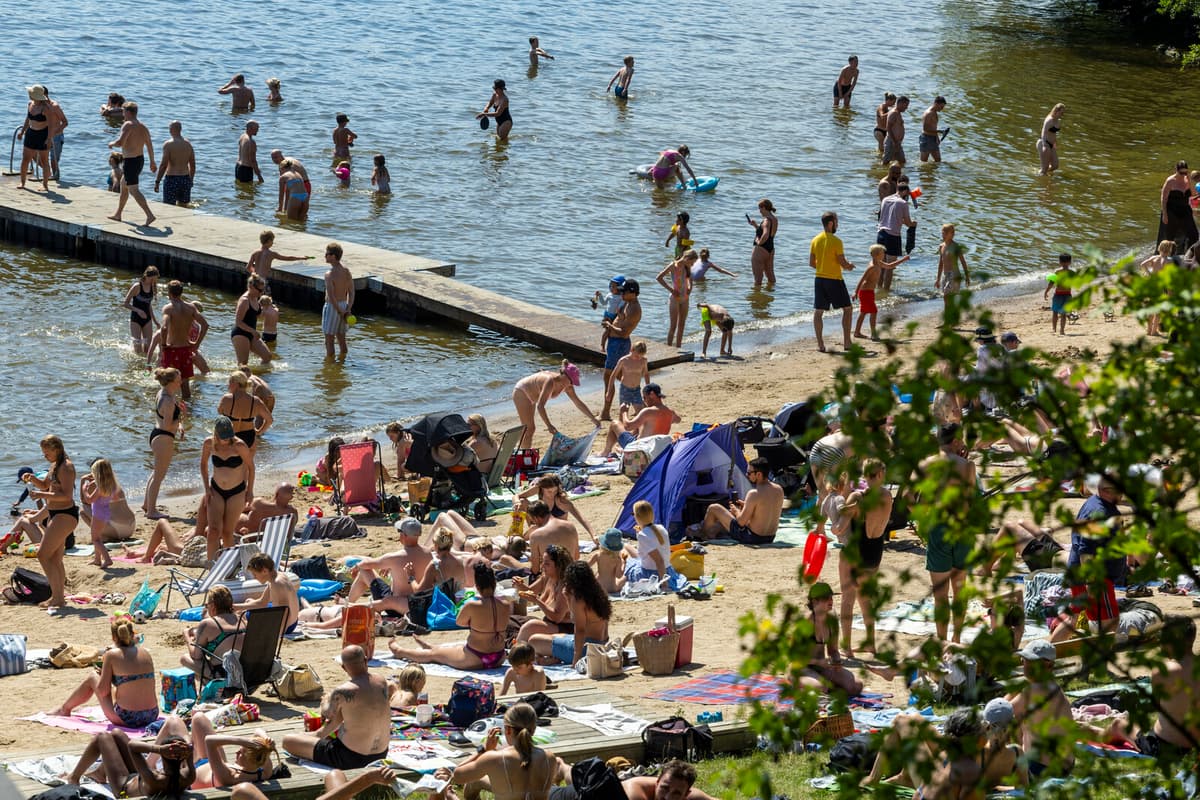On July 20, the Swedish Lifesaving Society alerted that there have been an unusually large number of drowning accidents in Sweden during the month of July.
We have had about one fatality per day over the past two weeks, said Göran Bertilsson at the Swedish Lifesaving Society to Ekot.
The trend has continued since then, with at least eleven people reported to have died after drowning alarms over the past ten days.
Older men
According to media reports, it involves one child and ten men, most of whom have been older.
Many seek out water due to the warm weather. We saw that in 2018 when it was so hot that there were an incredible number of drownings, says Jill af Edholm.
Men are always overrepresented in drowning accidents and often involve older people.
It may be because you overestimate your ability and maybe think you swim like you did 30 years ago, says Jill af Edholm.
Test your swimming skills
The Swedish Lifesaving Society urges both children and adults to test their swimming skills annually.
The swimming badge changes color every year because we want you to take it every year to maintain your swimming ability, she says.
In addition to keeping track of your own ability – and keeping a constant eye on children and non-swimmers near water – there are several basic things that the Swedish Lifesaving Society returns to in order to avoid drowning accidents.
We want to encourage people to be out and bathe and go boating, but at the same time, we urge caution. Use a life jacket in the boat, bathe together, swim along the shoreline. You should be aware of the dangers and be able to handle them, says Jill af Edholm.
The Swedish Lifesaving Society's preliminary compilation of how many have lost their lives in July due to drowning accidents will come in August.
Facts: Bathe safely
TT
Look for information signs that describe local conditions for the bathing area.
Always bathe together with someone.
Swim train/exercise where you can touch the bottom.
Test your swimming ability – first indoors, then outdoors.
Non-swimming children and adults need constant supervision and should always be within arm's length of a swimming adult.
Do not let siblings and/or non-swimming adults supervise the children.
Make a schedule of who is keeping an eye on the children. Do not take for granted that someone else is keeping an eye on them
Avoid drinking alcohol in connection with bathing.
Make sure to have flotation devices nearby in case of an accident. Always wear a life jacket when traveling on water.
Learn basic first aid for drowning as well as heart and lung rescue.
Alert SOS Alarm, 112, immediately in the event of a drowning accident. Source: Swedish Lifesaving Society






